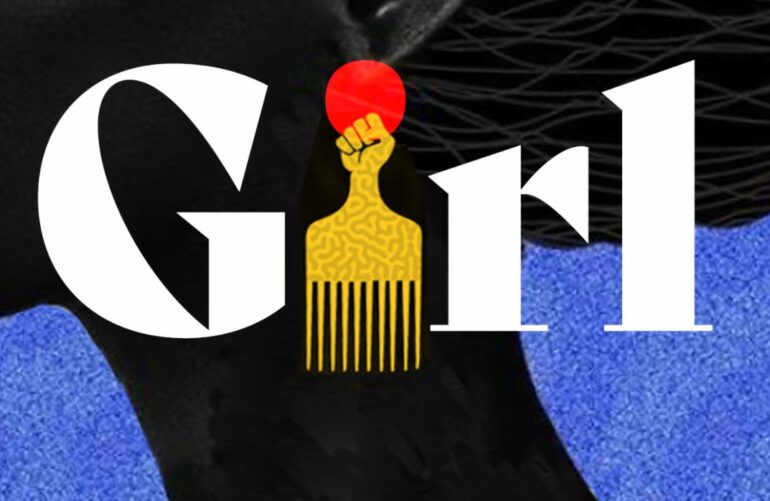The Other Black Girl is a book that’s exceedingly hard to pin down in terms of genre. Early reviews were labelling it as a cross between The Devil Wears Prada and Get Out, which I think you’ll agree is a pretty intriguing mix. I’d say that if that comparison does stand up anywhere, it will be the Get Out part, but it is also quite reductive and doesn’t quite do the book justice. I’m not sure that any comparison would have really told us what this book is trying to do. It is much better to go into it with an open mind.
Nella is a young black woman who works for Wagner Publishing, one of the most prestigious publishers in New York. She is the only black person who works there on the editing staff; every other person of colour works in reception, or the mail room, or on the cleaning staff. Nella is so excited when another black woman, Hazel, starts on the editing staff, and they hit it off straight away. But when Nella receives a mysterious note telling her to leave Wagner, and Hazel quickly catapults up the ladder ahead of her, Nella begins to wonder if the two things are related.
Like those films that tell a story from inside Hollywood, there is always something that feels a little bit voyeuristic reading a book that is about the publishing industry. Author Zakiya Dalila Harris is no stranger to the world of publishing, having worked in it herself, and that experience makes Nella’s day-to-day life very immersive. But whilst many films about films or books about books can be guilty of rose-tinting their industries, Harris goes in completely the other direction. If the title and the synopsis don’t give it away, The Other Black Girl is a book primarily about race, and the publishing industry does not come out of it very well. You don’t need to be an industry expert to know that there is still a major gap in publishing; the number of black editors and authors is painfully lacking compared to their white counterparts, and Harris does not shy away from making that clear. Nella is obsessed with a book that was written and edited by two black women, and the fact that even in 2018 (when The Other Black Girl is set) that is a remarkable oddity tells you a lot of what you need to know.
And honestly, if it sounds like I am talking a lot about the politics of the publishing industry when this book has been compared to Get Out, then you need to know that it is these politics that form the best moments of the book. Nella has spent most of her two years at Wagner trying to bring up the subject of diversity, and she has been shut down by colleagues every time – colleagues who are performatively supportive of people of colour, but who think being left-handed is a sign of diversity. Nella has made a point of getting on well with her colleagues, but as the mysterious notes keep coming and her paranoia grows, she begins to not only notice but really acknowledge the micro-aggressions that come from being one of the few black faces in the room.
The scenes that take place in the office, when Nella is feeling trapped and overwhelmed, are truly suffocating to read and experience with her. She feels like people are out to get her, to target her, and we are completely along for that ride with her. Harris’ strongest writing is in creating these small moments, these tiny aggressive looks or words, shared seconds between characters that might mean everything or equally nothing at all. By the end of the novel, I was as unsure as Nella who she could actually trust – up to and including her best friend and boyfriend who had been nothing but supportive.
There are some genre defying twists that take place in The Other Black Girl, and they make it into an unpredictable, slightly surreal read towards the end. But honestly, if Harris had only shone a light on Nella’s working life, and how the lack of diversity can eventually wear down even the staunchest individual, I would have still been seriously impressed with this book.
READ NEXT: The Best Post-Apocalyptic Books You Should Read
Some of the coverage you find on Cultured Vultures contains affiliate links, which provide us with small commissions based on purchases made from visiting our site.

